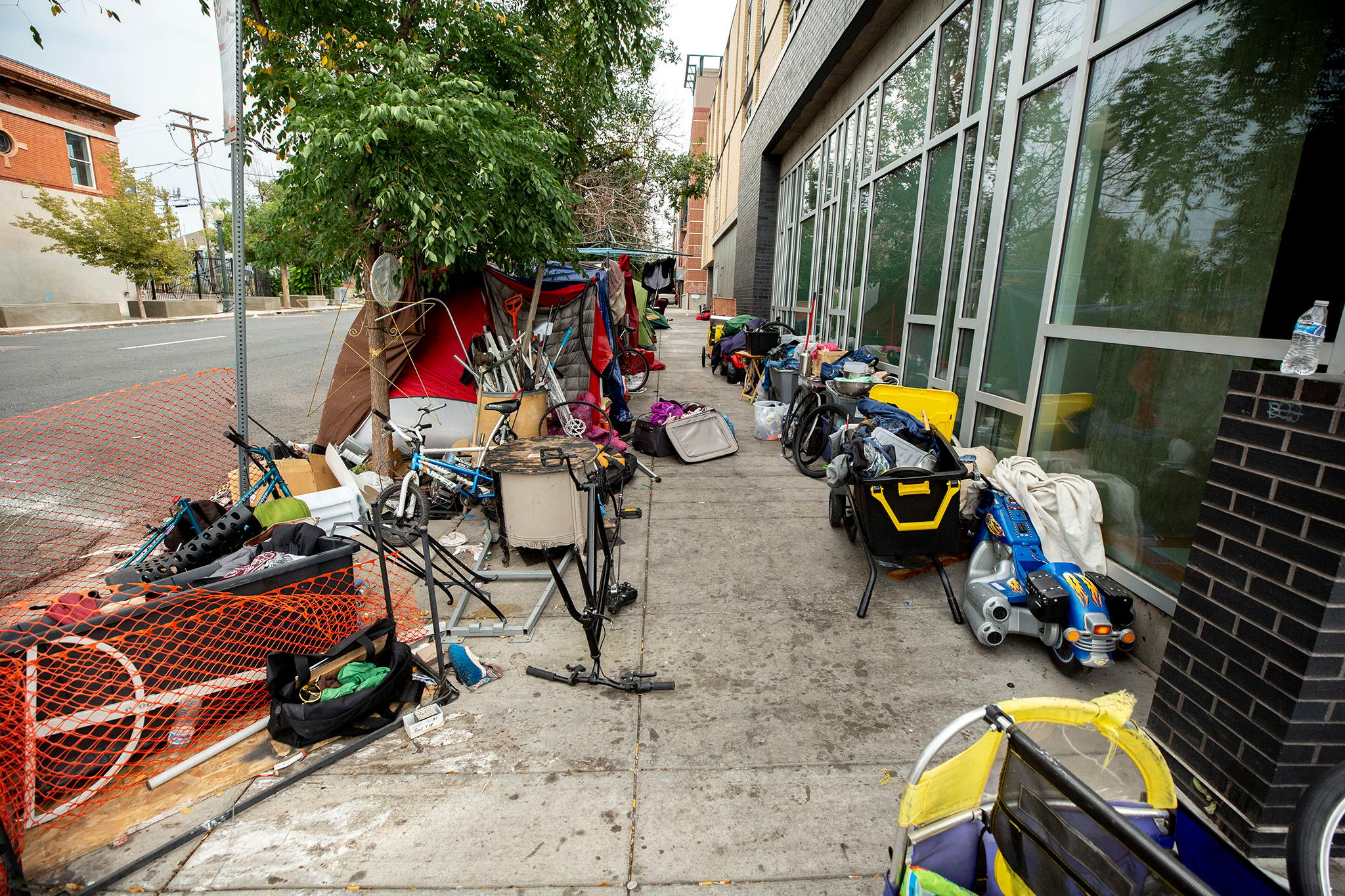Despite a lengthy public hearing and numerous constituent complaints, the Denver City Council has approved adding two more years onto a contract with a company helping the city sweep encampments.
The contract with Environmental Hazmat Services, or EHS, was approved 11-2 on Monday night, with councilmembers Jamie Torres and Candi CdeBaca the lone holdouts.
"I think it's important to note, we don't have an option, we don't have a plan B," Councilmember Chris Herndon said. "If we (voted down the contract), it would be months without having this material service."
The approved contract extends the city's deal with EHS, previously set to expire Oct. 10, until 2023. The company has been contracted with the city since 2018 and has received $1.57 million for their services. Marty Green, the president of EHS, did not attend the hearing.
Amendments to the contract included adding mandatory, city-run sensitivity training for employees and extra checklists to ensure cleanups are complete. EHS employees will also be prohibited from engaging with the public during cleanups.
Advocates, mainly from Denver Homeless Out Loud and Headwaters Protectors, brought up a slew of issues and supporting documents during public comment. The main concerns stemmed from their claims that cleaned sites still contained trash and sharp hazards like needles, that workers were insensitive or rude to the individuals whose possessions they were removing, and that the company was over-charging the city for using off-duty police officers as security at storage facilities.
"We're talking about renewing a contract of the body that's been, frankly, abusive to our homeless community," Ben Dunning, one of the founders of Denver Homeless Out Loud, told council while arguing that they should spike the contract. "It's not going to be easy, but you need to do it, because the damage that these people are causing into people's lives is going to continue to escalate."
Ultimately, the responsibility for leaving a clean site falls onto the shoulders of the city agency leading the cleanup, and not EHS. These agencies include Denver's Department of Transportation and Infrastructure (DOTI), the city's Department of Public Health and Environment, and Parks and Recreation.
"When we heard there was complaints and accusations, we did call the contractor, and we did have a very direct conversation with them," Margaret Medellin with DOTI told the council. "This is not behavior that the city can tolerate."
Advocates, councilmembers and other commenters were mostly in agreement that encampment cleaning and ensuring the safety of the public-right-of-way was necessary. The contention at the meeting came down to whether EHS was the right vendor to support city agencies. Many activists hoped the city would cancel the contract the same way it broke ties with Allied Security last year after their employees beat a Denver artist at Union Station.
Storage facilities where individuals living in encampments can retrieve their belongings were also a big topic for advocates. The city-run facilities are currently open from 6 to 8:30 a.m., four days a week, with an additional 6 hours on Thursdays.
While off-duty officers hired for security at these facilities were billing payments for four hours, their shifts were generally only listed as being 2 and a half hours long. Armed with data from CORA'd documents, advocates proved that the city was paying for 28 hours of security, despite the fact the storage facilities were only open for 16.
Most of the confusion stemmed from a requirement that off-duty officers receive a minimum of four hours' pay, which multiple councilmembers said was reasonable. They instead questioned why the facilities didn't simply stay open for the full four hours officers were being paid for.













